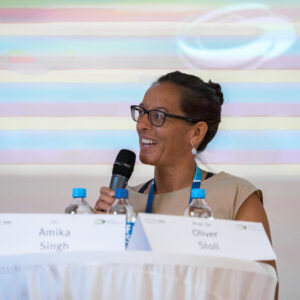
Development of standardized questionnaire assessing children’s Outdoor Active Play in the Netherlands
Abstract Overview
Background
Outdoor active play (OAP) contributes to children’s well-being and fosters their physical and mental health. There is a variety of definitions and measurement approaches reporting on OAP across research projects and policy frameworks. This diversity leads to discrepancies in reporting. Inconsistent findings across studies make it challenging to draw definitive conclusions about trends in OAP. The aim of the current project was to develop a standardized questionnaire on OAP for the Dutch research and policy context.
Methods & Results
First, we conducted an international literature review on OAP assessments. We compared various sources, revealing consistencies which led to our focus on parental reporting on frequency and duration of OAP in a select number of settings. Second, during a session with colleagues, we discussed findings and outlined the questionnaire’s structure. We drafted first version of the questionnaire. Based on existing research, we chose additional modules. In the third phase, we invited experts to participate in a survey during which they could provide online feedback, shaping questionnaire revisions.
The final OAP questionnaire (OAPQ) comprises a core questionnaire of 10 questions and five additional modules, totaling 35 questions. The OAPQ takes into account OAP in three different contexts, ie school, after school care and free time. The five additional modules focus on (1) what else does your child do in their free time?, (2) what does your neighborhood look like?, (3) what is your opinion on OAP?, (4) what does your child do during OAP?, and (5) characteristics child and family.
Completion time is approximately 15 minutes. Researchers can tailor the OAPQ by selecting modules.
Conclusions & Practical Implications
If used consistently by all organizations working in the research and policy context, the OAPQ contributes to a standardized monitoring of OAP levels.
Funding: Dutch Ministry of Health, Welfare & Sports
Additional Authors
Name: Tessa ten Tije
Affiliation: Mulier Institute, Utrecht, the Netherlands
Presenting Author: no
Name: Marloes van Gorp
Affiliation: Mulier Institute, Utrecht, the Netherlands
Presenting Author: no

